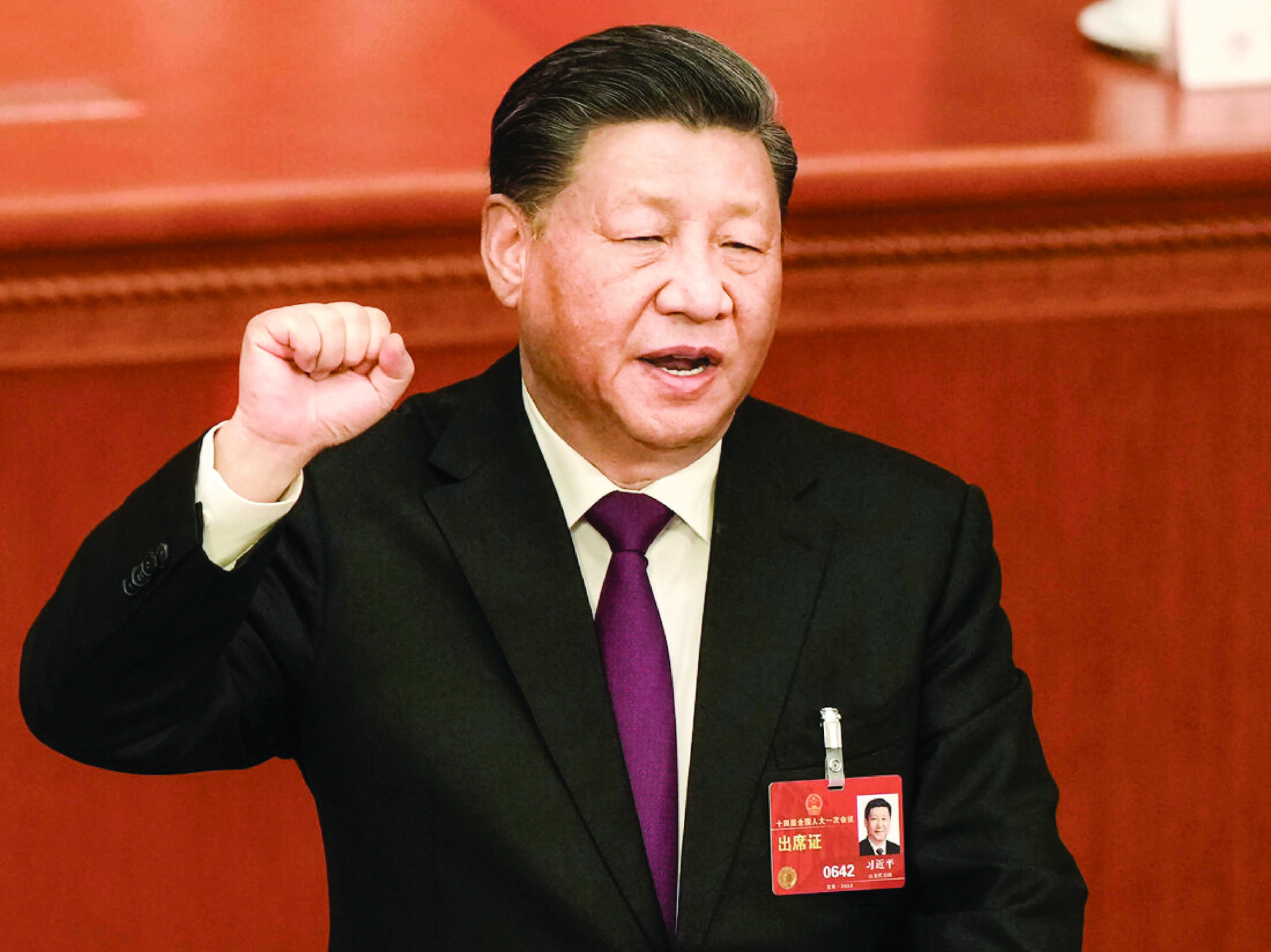Xi and the CCP are obsessed with the Dalai Lama, which is outrageous because of their declared contempt for religion and their denigration of the Dalai Lama.
On 21 October 2024, Penpa Tsering, the elected “President” of Tibet made experts from a leading New Delhi think-tank laugh aloud when he advised Chinese President Xi Jinping to order his Chinese Communist Party (CCP) to find out reincarnations of the great dead Chinese leaders like Chairman Mao and Deng Xiaoping. He made this tongue in cheek remark as he was underlining President Xi’s feverish obsession with exclusive ownership of the process of discovering the next child reincarnation of the present Dalai Lama.
This obsession of Comrade Xi and his Communist Party looks funny, or is rather outrageous because of its declared contempt for religion and also that all Chinese leaders, right from Mao to Xi himself, have been using the choicest abusive terms in the Communist lexicon for the Dalai Lama. The six-century-old institution of the Dalai Lama of Tibet is unique because it occupies the supreme position in both spiritual as well as temporal matters of Tibet, and this inheritance transfers only through reincarnation. It is believed that enlightened souls like the Dalai Lamas and other learned monks have the virtue of guiding their own rebirth process. After the death of a Dalai Lama, the Tibetans search for, identify and install the next Dalai Lama baby boy through a typical process, which involves testing of all boy children born after the death of a Dalai Lama. A major factor which directs this search process are the personal indications and desires left behind by a Dalai Lama about the place, family and other elements of his own choice of his next birth.
In Tibet, China has been facing strong resistance from the Tibetan population right from the day when the Chinese PLA marched into Lhasa in 1951. In the initial four decades of Tibetan occupation, the communist masters of Tibet tried every tool under their command to suppress religion with the hope that absence of religion will make people understand and accept communism more faithfully. But it only provoked the Tibetan masses further to express their anger through small but frequent uprisings across Tibet. Massive uprising of Lhasa in 1987 and 1989 forced the Beijing leadership to realize the influence of religion and of Dalai Lama despite his three-decade long absence. It was decided to use religion as a tool rather than resisting it.
The first public signal of this change in Chinese strategy came in 1992 when Beijing decided to undertake and install the reincarnation of 16th Karma Pa. Same process was repeated in 1995 for identification of the incarnation of 10th Panchen Lama whom Beijing had used against the Dalai Lama till he died in Tibet at Shigatse in 1989. A committee of senior monks of late Panchen Lama’s monastery was formed under the leadership of a communist officer to look out for the new incarnation of late Panchen Lama. The monk members of the committee identified a five-year-old boy, Gedhun Choeky Nyima and secretly took approval of the exiled Dalai Lama on the authenticity of the new incarnate boy. This angered Beijing so much that Gedhun and his parents were taken away by Chinese security personnel and another boy of the same age, named Gyaltsen Norbu, was formally installed as the new Panchen Lama. The whereabouts of Gedhun and his family are yet to be made public by the Chinese authorities despite repeated international outcries.
The Panchen Lama’s role is important because the Dalai Lama and Panchen Lama play an important role in certifying the incarnation of each other and also work alternately as the teacher of the other’s incarnation. Beijing has placed high stakes on Gyaltsen with the hope that he will be a useful tool when it comes to installing the next Dalai Lama. But the Tibetans have refused to accept. So much so that the Chinese administration uses police force and money to bring Tibetan crowds to his congregations.
In 2007, the Chinese government adopted a special law called “Order-5” which governs the search process and certification of the reincarnation of the future “Living Buddhas” (or “Tulku” in Tibetan terminology). This law gives all powers for the selection of any future “Living Buddhas” to the respective Buddhist association of the respective region and is fully controlled by senior communist cadres.
Beijing has come to realize that it will be easy to tame the Tibetan people once the Dalai Lama is under its control. But as a permanent solution to its Tibetan headache the Xi government
Being aware of Chinese plans about his reincarnation, the Dalai Lama had already played his master stroke by bifurcating the role and power of Dalai Lama by passing on all political powers, so far vested in the Dalai Lama, to the elected representatives of Tibet who comprise of the elected “Sikyong”, the exile Parliament and the Tibetan judiciary. In practical terms it means that even if China manages to install a puppet Dalai Lama of its choice in Tibet, the real political powers will remain outside the control of Beijing or the CCP. This master stroke of the Dalai Lama has extended the shelf life of the political role of the Dalai Lama institution beyond his own life time and insulated the Tibetan system from Chinese manipulations.
* Vijay Kranti is a veteran journalist and a keen observer of China and China-Tibet affairs. He is associated with the Centre for Himalayan Asia Studies and Engagement (CHASE), New Delhi.

